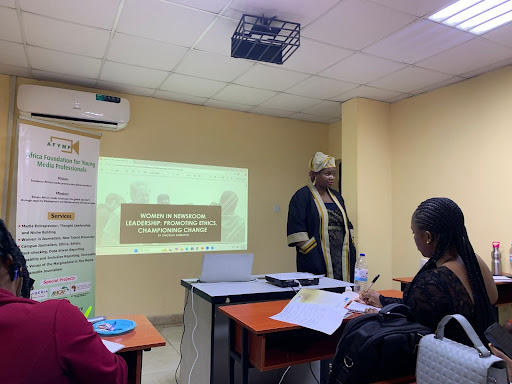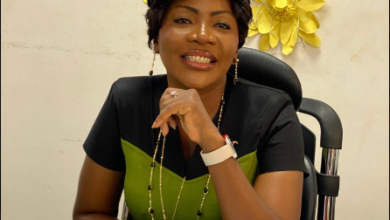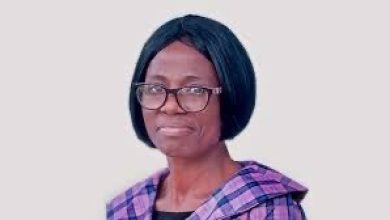
|
Getting your Trinity Audio player ready...
|
As part of its 2025 media programmes, the Africa Foundation for Young Media Professionals (AFYMP) trained women in journalism on July 3rd, 2025, at the Centre for Management Development, Magodo, Lagos. The training, which was held virtually and in person, featured five media experts who taught 18 female media professionals how to succeed, lead, and make an impact in the Nigerian media landscape.
Award-winning crime and security reporter Juliana Francis trained the fellows on investigative journalism, dynamics, and safety.
She explained that investigative journalism must be of public interest, demand accountability, and be data and solutions-driven. She encouraged ethical reporting, stating that journalists must not receive bribes to conduct an investigation or give out the same to extricate information from subjects.
She also encouraged fellows to be security conscious and do in-depth research about the story and the community they want to investigate. She advised that journalists should use fixers for unfamiliar communities to ensure safety.
“No story is worth your life,” she warned.
Flourish Ubanyi, Head of Deutsche Welle’s Lagos Bureau, taught fellows about Newsroom Leadership, Business Sustainability, and Ethics. She said journalists must be conversant with the media business because it increases their value in the newsroom.
She also urged media professionals to be versatile and build capacity in different media areas to lead their teams effectively. Further encouraging capacity building, she advised that journalists can take advantage of media opportunities with adequate preparation.
Similarly, Stella Din-Jacob, the News Director at TVC Communications, taught the fellows about newsroom leadership and creating a work-life balance. Drawing from personal examples, she nudged women to be diligent in their work and to balance their family responsibilities with their work. She counselled that neither must suffer, and they should find strategies that work best for them.
Stella also recommended that writers find a conducive space with minimal distractions to ensure they can focus on their work. Among other effective strategies, she advised professionals to seek mentors who can guide and support their career advancement.
She added that they should not neglect self-care and invest in personal time and relaxation moments to stay optimal.
Abimbola Bello, Director of News at Lagos Television, engaged the fellows in People in Management for Results. She advised them to manage relationships with their colleagues and superiors. If they are not getting along with a superior, they should strategise on an appropriate time to raise their concerns with the leader for a peaceful resolution.
Rounding up the knowledge transfer session on newsroom leadership, Omótólá Adébánjo, Editor of Gist Nigeria at BBC, encouraged the journalists to be confident and intentional about networking. She noted that only 25.7% of women occupy leadership positions in the newsroom, according to the Wole Soyinka Centre for Investigative Journalism report, and for that to change, women must engage in self-advocacy.
She also advised that journalists should advocate for other women in the newsroom and push for policy changes when in leadership positions. For systemic issues such as sexual harassment, she said that they should escalate to relevant leaders in the organisation.
As the programme concludes, participating journalists, including Simbiat Bakare from Naija Feminists Media, Victoria Ogechukwu Ujam from WikkiTimes, Titilayo Ilebani from NigeriaUpdates, and Miskilu Aminat Olaitan from TVC Communications, expressed gaining diverse knowledge from the workshop.
“What stood out for me is to be disciplined,” said Oluwabukonla Akande, a broadcast journalist at NTA. “As a journalist, you must be proactive, engage in self-care, and learn everything about journalism.”
Another participant, Bunmi Aduloju, a journalist with TheCable Newspaper, said,
“The session has been impactful and eye-opening. I learnt a lot.”





